The bagpipe is a traditional instrument not only for the Balkans but for the rest of Europe. In Bulgaria, two types of bagpipes are played – a small one called "jura" and a large "kaba". The Rhodope region is known all over the world for the traditional “kaba” bagpipes. In fact, this is the music instrument that Bulgarians recognize as a national one, because its sound can give you goosebumps, or sometimes its melody heard over the Rhodope ridges could move you to teqrs.
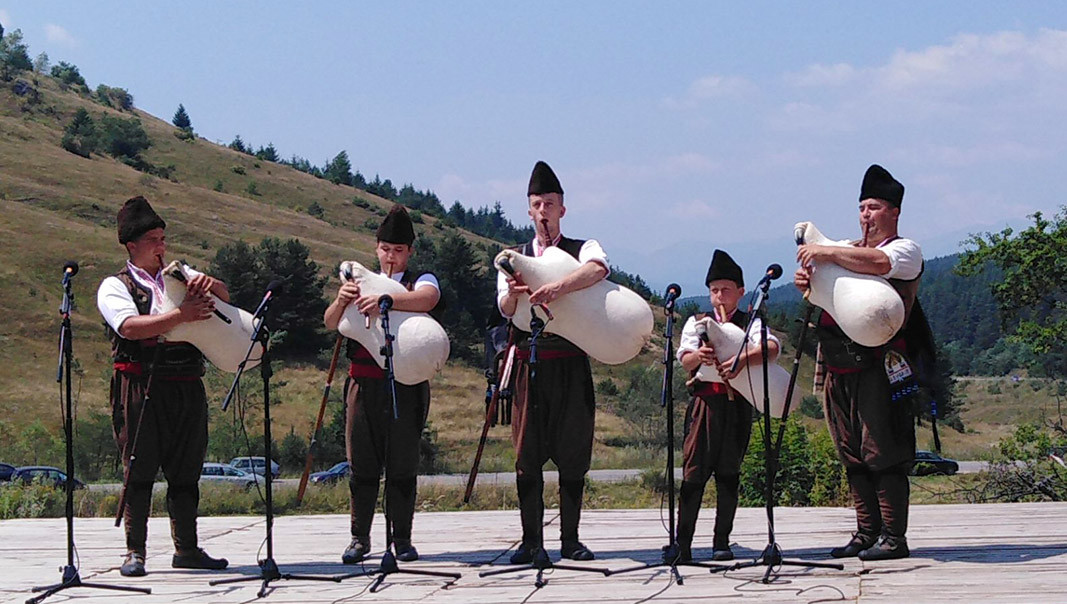
Famous master bagpiper and craftsman Iliya Uchikov, who has created dozens of kaba bagpipes lives and works in the town of Chepelare.
There is creative chaos in his small workshop but he easily finds everything he needs in order to assemble a bagpipe! And this definitely takes time, Iliya Uchikov says in an interview with BNR-Kardzhali. Often people try to order a bagpipe on the phone, but he claims the bagpipe is made the way tailors make clothes.
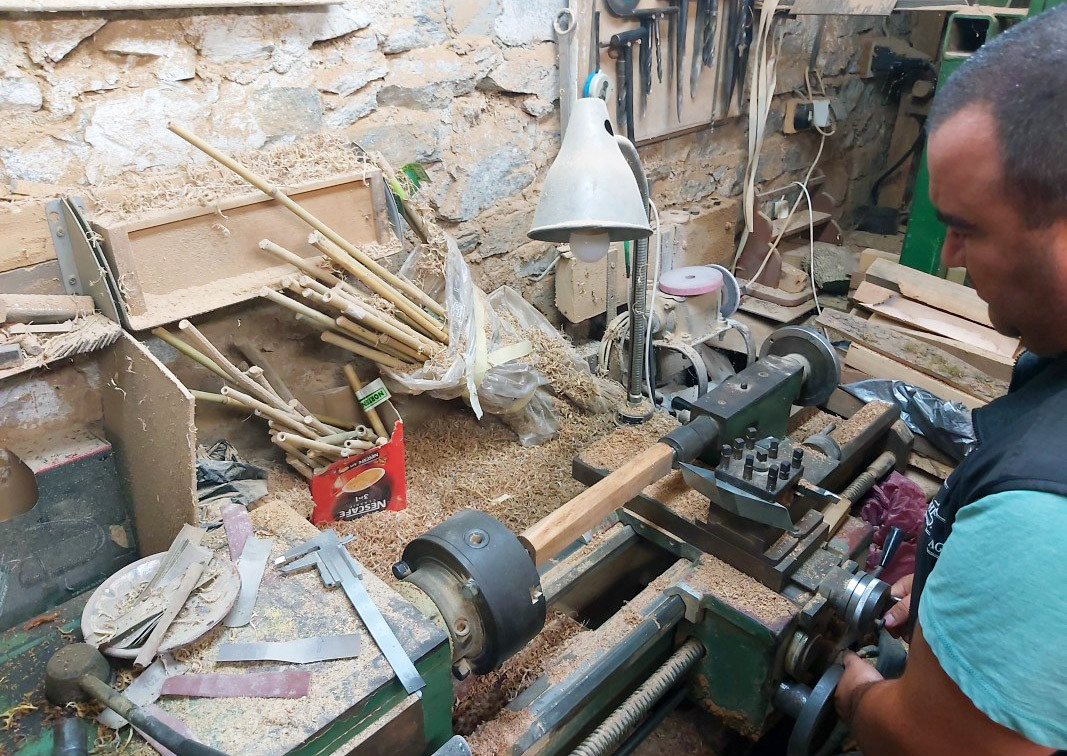
"I need to see the person who will play it to know how big to make it. I need to know whether it is for a child or an adult. Then I need to adjust it," Uchikov says.
But lately, it has been increasingly difficult to find suitable materials for the manufacturing of the instrument. What animal skin does he use for the bagpipe?
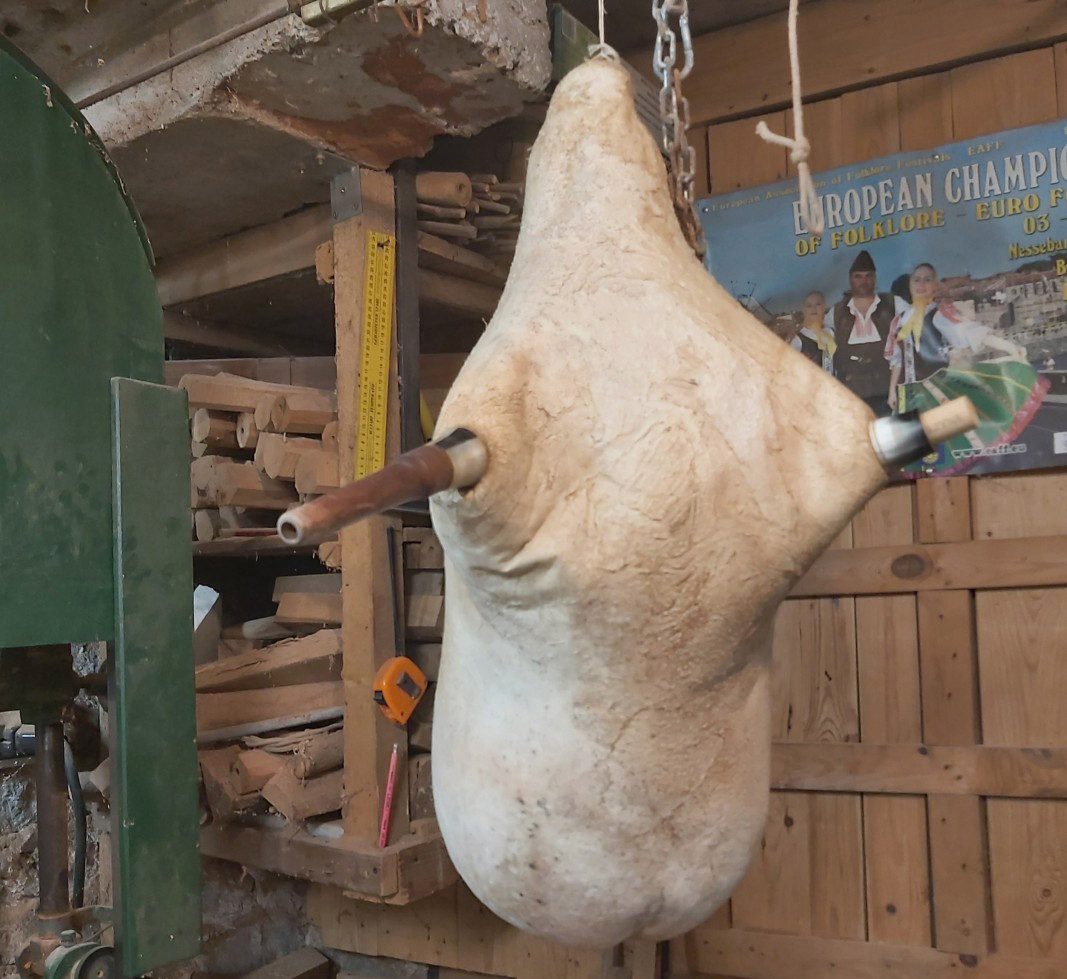
"Only goat, as other skins are weaker and break. Goat skin is tough and does not let air through the pores. It's good that I know farmers. I still find materials from them. Horns are scarce, but I still have some of them. Today it is difficult to find ox horns, because there are few oxen.

And some people think that when they bring me the skin, the bagpipe is almost ready. It is the wooden parts that make the sound. The soul of the bagpipe is the ‘gaidunitsa’ (reed)," the master says.
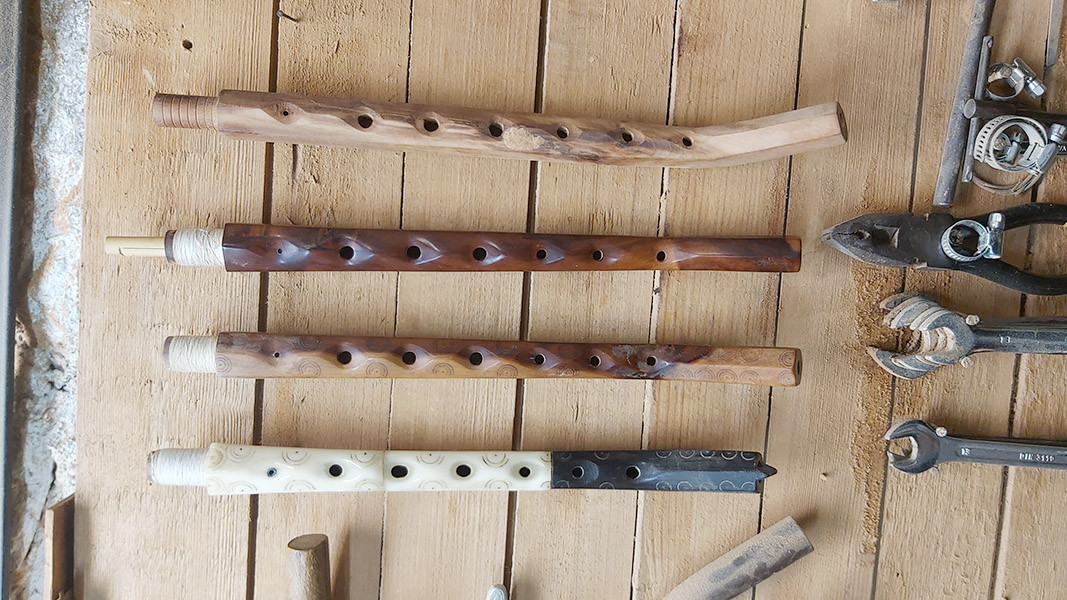
Bagpipers often visit his workshop. The craftsman from Chepelare claims that his bagpipes are played all over the world.
"I know where each bagpipe went; I know every person who plays my bagpipe. I have been keeping a record from the very beginning. I don’t know their exact number, but they are certainly over 200. My bagpipes are all over the world - in Australia, South America, North America, all over Europe ... World-famous bagpiper Ivan Varimezov also plays my bagpipe.”
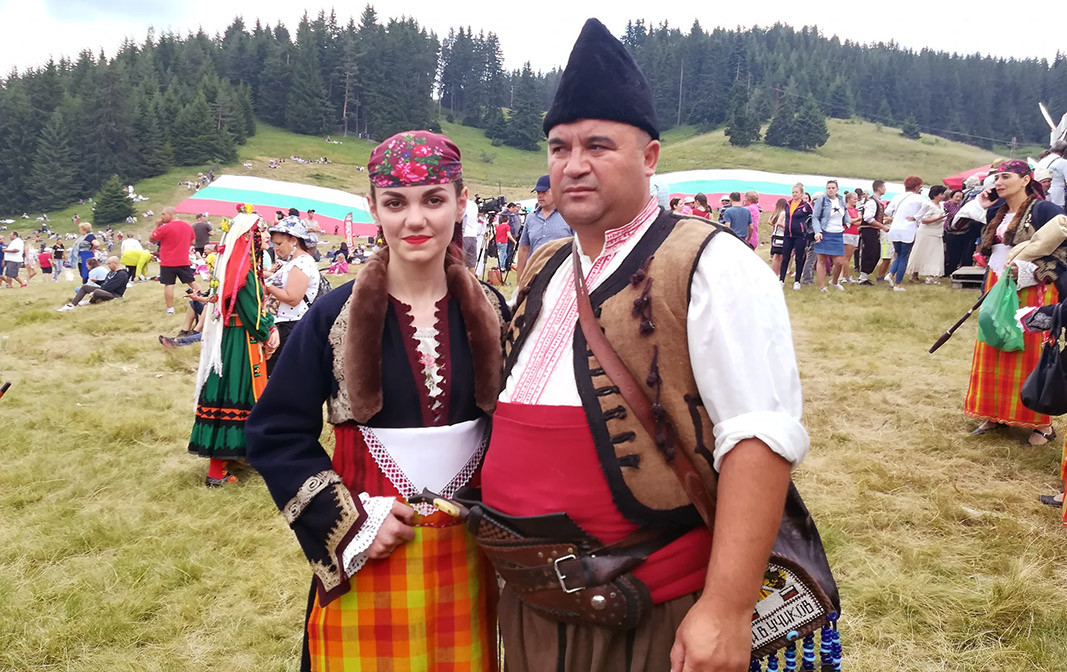
Iliya Uchikov has also been a bagpipe teacher for 22 years. He teaches children in the local community center "Rodopska iskra - 1880". He hopes that one of his students will follow into his footsteps and continue the craft.
His small workshop in Chepelare is often visited by curious tourists. So if you stop in this Rhodope town, along with the ski museum, you can visit the community center and ask about the workshop of bagpiper Iliya Uchikov.
English: Alexqnder Markov
Photos: Angel Nikolova and Bozhidar Cholakov
The feast of the Annunciation (Blagoveshtenie in Bulgaria) is a holy day , a symbol of God’s infinite mercy to people and especially to women, blessed to bear new life, but also an embodiment of the eternal human longing for something better in the..
Clocks and bells will ring out in the center of Stara Zagora on Saturday, when the city will host the XXIV Masquerade Games Festival . The event will start with a traditional parade of participants. Attractive babugers, araps, old men and other..
Today marks the 88th anniversary of the birth of remarkable Bulgaria folk singer Nadka Karadzhova . Born on March 14, 1937 in the then Pazardzhik village of Trivoditsi (today - Plovdiv region), she is a descendant of an old musical family. At the age..

+359 2 9336 661
